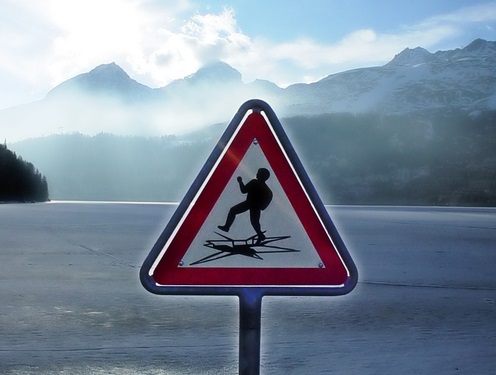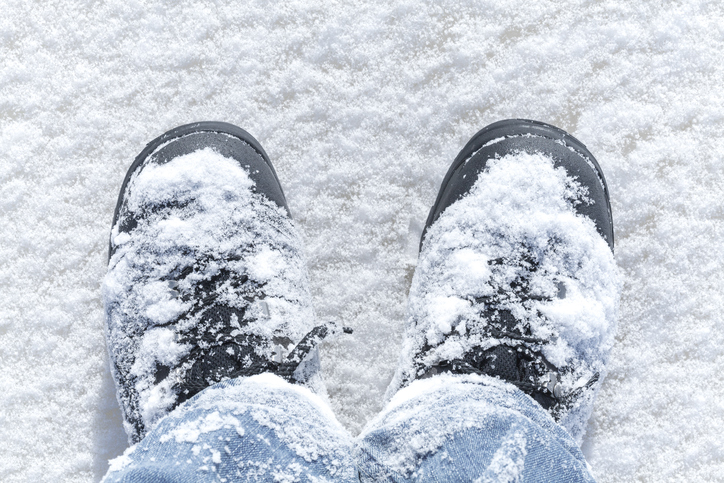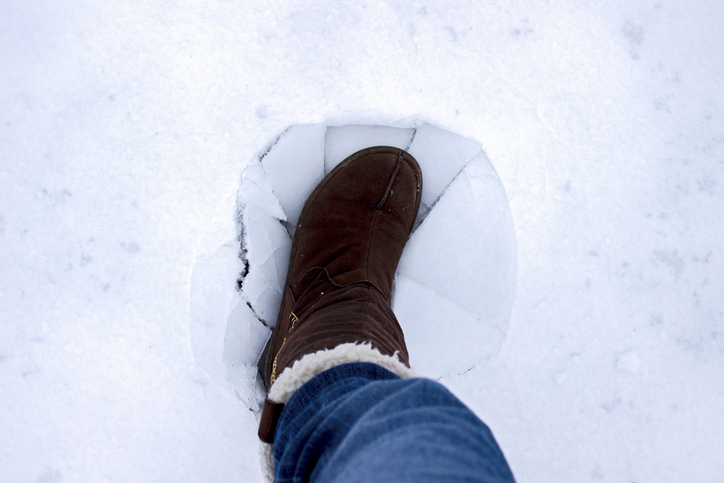
We find ourselves now in the middle of winter – a season which means cold temperatures, runny noses, and snowy streets, especially in Germany. But Germans can be heard saying a lot of winter-related phrases regardless of the season. 7 German idioms, which refer to the cold but have nothing to do with the winter.
1. To make somebody cold

Beware! If someone tells you, that they are going to make you cold, you might be in danger. To make somebody cold “(“jemanden kaltmachen”) is a German expression meaning to kill someone.
2. Ass on ground-ice

What? Ass on ground-ice? Yes: “Jemandem geht der Arsch auf Grundeis”, literally meaning your ass is going onto ice on the ground, is just a German way of saying you are really afraid. We aren’t sure why Germans made a connection between fear and a cold butt, but there you are!
3. To jump into the cold water

Do you know those people who would turn their fear into courage, who climb mountains, go skydiving, or trek through the jungle? People who would launch themselves into a new situation without knowing what’s going to happen next? What you may know as ‘jumping in at the deep end’ in English has a colder association in German: jumping into the cold water (“ins kalte Wasser springen”).
4. Yesterday’s snow

It’s in the past, it’s over, Hakuna Matata, “Schnee von gestern”. Yesterday’s snow is the German way of saying something is in the past.
English and German speakers share more than a few of these winter-based idioms. Below are three chilly phrases that both an English and German speaker would understand.
5. Moving on thin ice

You’re on thin ice, or in German, you’re moving on thin ice (“Du begibst dich auf dünnes Eis”) is a chilly warning. German and English speakers both mention ‘thin ice’ when letting someone know that they haven’t been acting well and had better be careful.
6. To get cold feet

Your wedding is just days away, but you’re having second thoughts … you were going to move to a new city, but suddenly you are doubting the plan … If you feel like backing out of a committment, both English and German speakers say you’re getting cold feet.
7. Break the ice

In both English and German, ‘breaking the ice’ means making the first step in a social setting. Whether you ask someone their name, crack a joke, or introduce yourself–you broke the ice!
Also in our blog: Fall has come – a season which not only changes the outer world by re-coloring leaves, cutting daylight hours short, and calling umbrellas back to life, but also affects our inner world. Below are six words unique to the German language, which gain relevance as soon as the summer ends.
Main photo: AlekZotoff / Istockphoto.com
